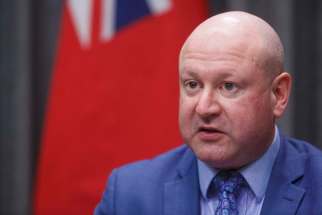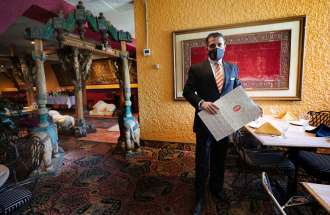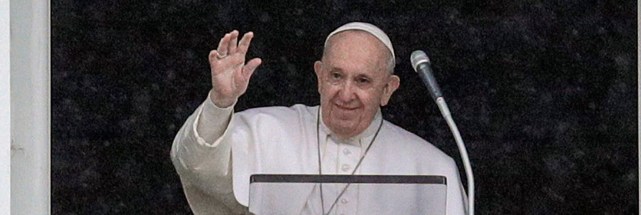U.S. judge rules against neo-Nazi former Manitoba reservist Defence lawyers fail in effort to suppress evidence against Patrik Mathews, co-accused in Maryland
Read this article for free:
or
Already have an account? Log in here »
To continue reading, please subscribe:
Monthly Digital Subscription
$0 for the first 4 weeks*
- Enjoy unlimited reading on winnipegfreepress.com
- Read the E-Edition, our digital replica newspaper
- Access News Break, our award-winning app
- Play interactive puzzles
*No charge for 4 weeks then price increases to the regular rate of $19.00 plus GST every four weeks. Offer available to new and qualified returning subscribers only. Cancel any time.
Monthly Digital Subscription
$4.75/week*
- Enjoy unlimited reading on winnipegfreepress.com
- Read the E-Edition, our digital replica newspaper
- Access News Break, our award-winning app
- Play interactive puzzles
*Billed as $19 plus GST every four weeks. Cancel any time.
To continue reading, please subscribe:
Add Free Press access to your Brandon Sun subscription for only an additional
$1 for the first 4 weeks*
*Your next subscription payment will increase by $1.00 and you will be charged $16.99 plus GST for four weeks. After four weeks, your payment will increase to $23.99 plus GST every four weeks.
Read unlimited articles for free today:
or
Already have an account? Log in here »
Hey there, time traveller!
This article was published 16/02/2021 (1759 days ago), so information in it may no longer be current.
It was a bad day in court for Patrik Mathews.
Efforts by the former Canadian military reservist’s defence attorney to have much of the evidence against him thrown out were dismissed by a Maryland judge Tuesday afternoon.
Mathews, 28, has been in the custody of U.S. officials since January 2020, when he was arrested — alongside two other men — by special agents with the Federal Bureau of Investigation in Delaware.
That came more than four months after the Free Press — following a month-long undercover investigation — publicly identified Mathews as a member of the Canadian Armed Forces who was moonlighting as a recruiter for a violent neo-Nazi paramilitary group called the Base.
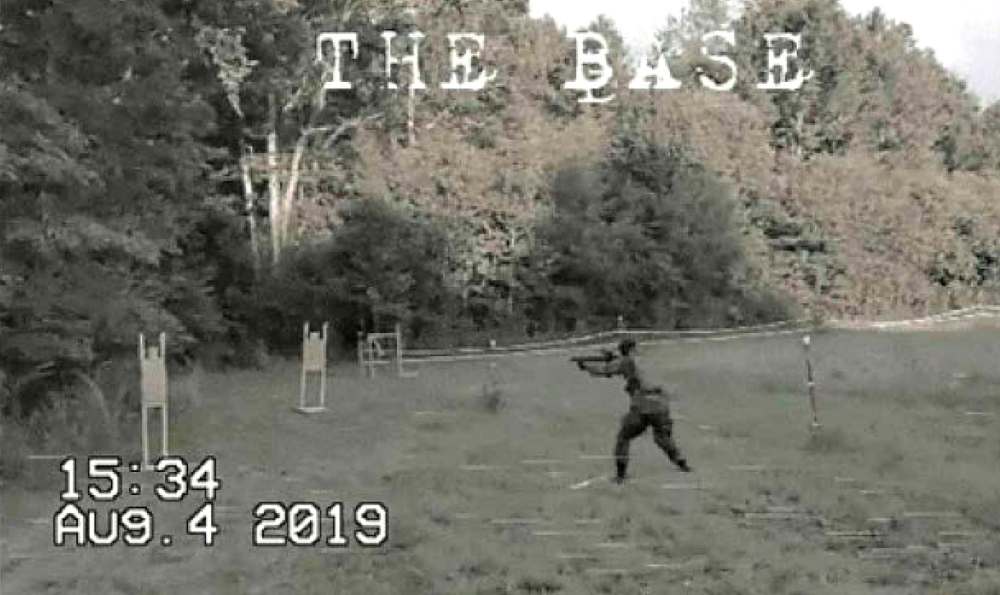
Hours after Mathews was exposed in late-August 2019, his home in Beausejour was raided by the RCMP. Soon after, he vanished, ditching his truck at the U.S.-Canada border and fleeing stateside to link up with neo-Nazi comrades.
Once in the U.S., Mathews — alongside his co-accused Brian Lemley Jr., 34 — was swept up in a nationwide crackdown on the Base following a lengthy investigation by the FBI and the Bureau of Alcohol, Tobacco, Firearms and Explosives.
The prosecution contends the two men were planning a terror attack at the time of their arrests. Mathews faces four criminal charges which, if convicted on all counts, could see him spend decades behind bars in U.S. federal prison.
Matthews faces U.S. federal charges that include two counts of being an alien in possession of a firearm and two counts of transporting a firearm across state lines with intent to commit a felony.

William Bilbrough, a third man arrested with them, pleaded guilty to two charges in December 2020. He admitted to being a member of the Base and was sentenced to five years in prison.
The hearing began Tuesday morning via teleconference in Greenbelt, Md., with district court Judge Theodore Chuang asking assistant U.S. Attorney Thomas Windom if he had provided all exculpatory evidence to the defence; Windom confirmed he had.
Ned Smock, who is representing Lemley, was the first to speak on behalf of the defence, arguing there were numerous deficiencies in the affidavits used by investigators to secure warrants during their probe.
Alongside Joseph Balter, Mathews’ attorney, Smock argued officials went too far with their investigation into the accused and violated their constitutional rights. As a result, Balter and Smock filed motions seeking to suppress evidence obtained through various warrants.
In particular, the defence attorneys took issue with the extensive audio and video surveillance federal law enforcement carried out on an apartment Lemley and Mathews were sharing in Delaware in the lead up to their arrests on Jan. 16, 2020.
Smock presented an argument that would later be expanded upon by Balter: while there was plenty of evidence the men had engaged in objectional and offensive speech, there were no concrete plans for immediate criminal activity.
Balter pointed to the landmark U.S. Supreme Court ruling of Brandenburg V. Ohio, an important precedent for First Amendment jurisprudence. The case centred on a Ku Klux Klan leader from rural Ohio who had been convicted of advocating violence in 1964.
The Supreme Court later took up the case and threw out the conviction.
The ruling established the “imminent lawless action” standard in the U.S., which states the government can only punish inflammatory speech if it is aimed at producing — and is likely to succeed at instigating — immediate criminal behaviour.
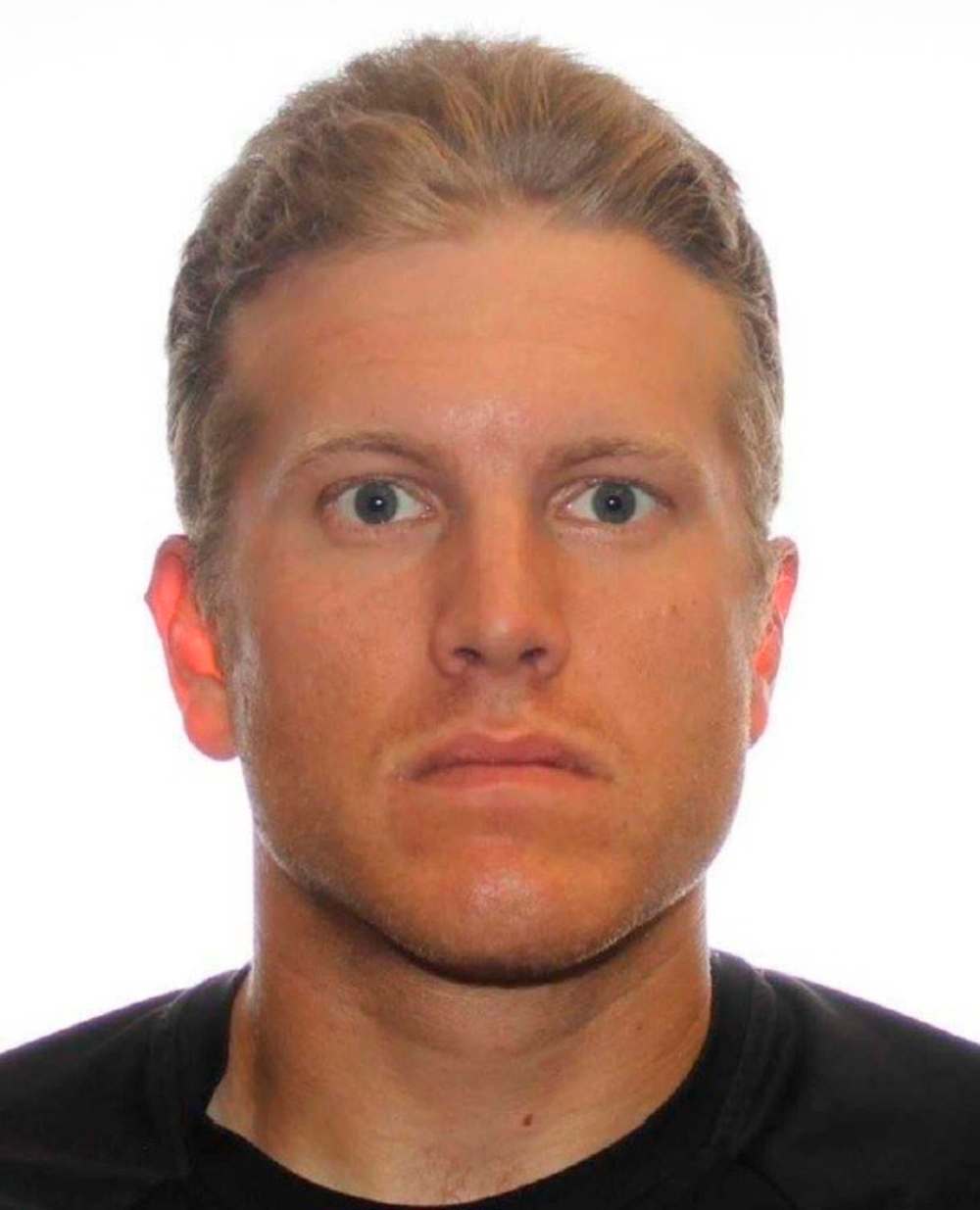
Balter said Mathews and Lemley had engaged in “idle chatter” and daydreamed about violence, including “wild-eyed ideas” about potential actions that could be taken during future “abstract circumstances,” but stressed it did not mean the two men had planned an actual attack.
The defence attorneys also argued that law enforcement did not exhaust all other potential investigative avenues before moving onto the “incredibly invasive” wiretap and video surveillance.
But during his presentation to Chuang, Windom countered by saying the only way the defence attorneys’ arguments could be true, is if the six separate judges who signed off on the warrants in late-2019 had all made, independently of one another, grave legal errors.
“So six different federal judicial officers were wrong?” Windom asked, before calling the defence attorneys’ assertion “extraordinary.”
Chuang ultimately sided with Windom, dismissing numerous motions filed by the defence attorneys seeking to suppress evidence. The district court judge also denied a request by Balter to have Mathews tried separately from Lemley.
However, Chuang reserved judgment on a single motion filed by Balter seeking to dismiss two of the four charges Mathews is facing. Balter argues Mathews was overcharged and that two of the counts against him are essentially duplicates of the other two.
That matter will be dealt with at a future hearing, as will the question of whether Mathews’ post-arrest statements to FBI agents will be allowed into evidence. No trial date has been set.
ryan.thorpe@freepress.mb.ca
Twitter: @rk_thorpe

Ryan Thorpe likes the pace of daily news, the feeling of a broadsheet in his hands and the stress of never-ending deadlines hanging over his head.
Our newsroom depends on a growing audience of readers to power our journalism. If you are not a paid reader, please consider becoming a subscriber.
Our newsroom depends on its audience of readers to power our journalism. Thank you for your support.









